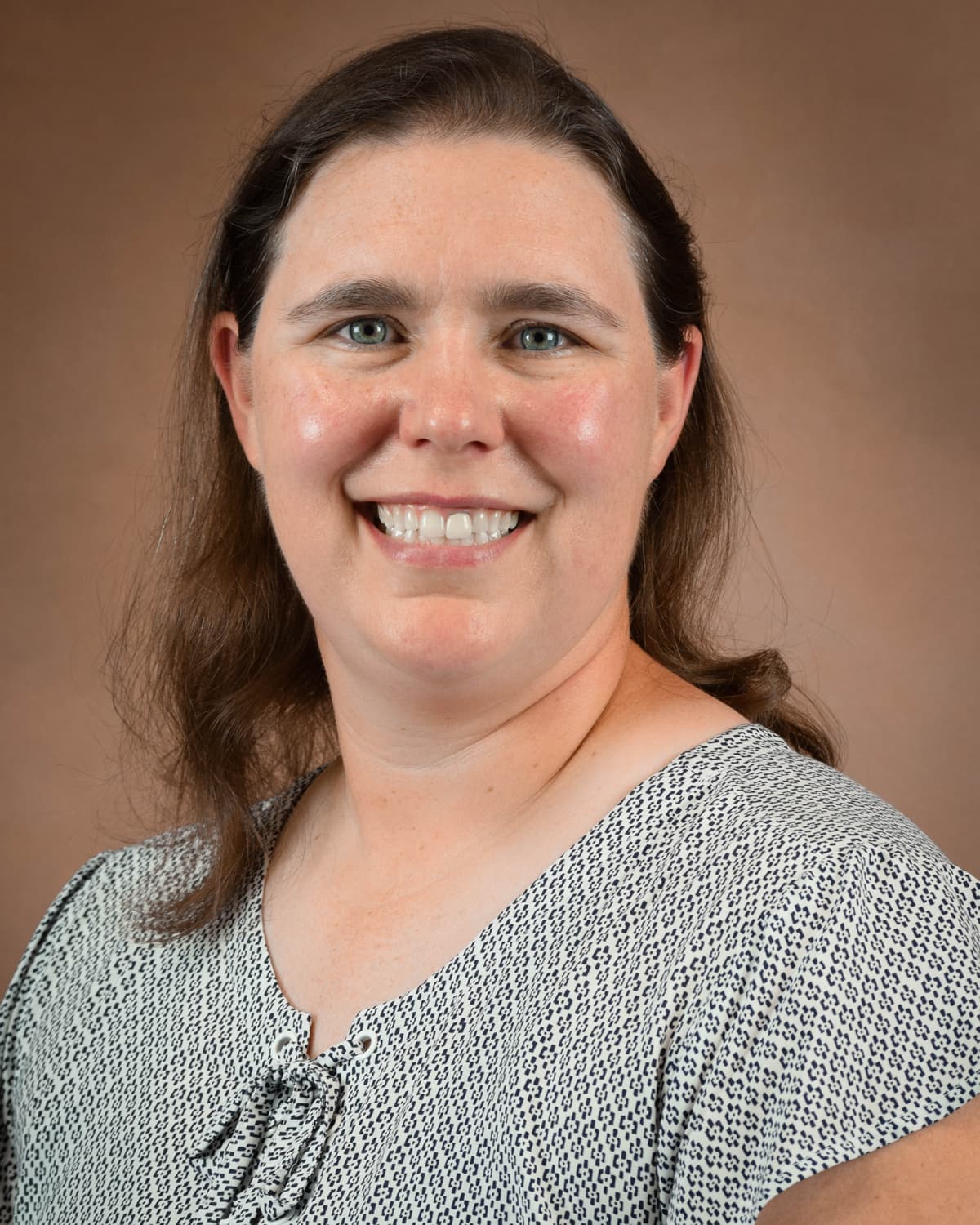First-Generation Spotlight
Brandy Sreenilayam, PhD
December 11, 2023
Brandy Sreenilayam, PhD, received her bachelor's degree in biochemistry from the University of Detroit Mercy.
After completing her doctoral degree in molecular physiology and biophysics from the
University of Iowa, she taught biochemistry and other chemistry-related courses at
four different institutions. Her research focused on trying to purify the protein
LGN with the end goal of determining its structure using X-ray crystallography.
In 2019, Dr. Sreenilayam joined the faculty at PCOM South Georgia as an assistant professor of biochemistry and cellular genetics.
Outside of work, Dr. Sreenilayam enjoys hunting, fishing, watching her kids play sports,
and spending time with her family.
Dr. Screenilayam is a member of the Association of Biochemistry Educators (ABE), the
American Chemical Society (ACS), Graduate Women in Science (GWIS), and the American
Association for the Advancement of Science (AAAS).
How do you define first-gen?
A person who attends an undergraduate college whose parents did not attend any type
of college (i.e. community college, undergraduate college).
Tell me about your experience in graduate/medical school.
While in high school, I aspired to be a physician. I looked at undergraduate colleges
that offered science degrees. When I enrolled at the University of Detroit Mercy,
I didn't declare a major, but given my intent was pre-med, I was paired with an advisor
who was a faculty member in the chemistry department. I successfully made it onto
the college softball team and there was a Senior who was also pre-med. She advised
me to major in biochemistry to prepare for medical school, so I declared biochemistry
my major during my freshman year. I also worked as a tutor at the college for all
4 years in the work-study program; I tutored chemistry, physics, math, and biology
courses.
During my junior year, I switched from pre-med to wanting to go to graduate school
to become a professor of biochemistry. The summer before my senior year, I worked
at a local research and development company to gain more research experience and improve
my chances of getting accepted into a graduate program in biochemistry.
I applied to 8 universities and was accepted into 4 of them. I chose to attend the
University of Iowa biochemistry department because I felt like I fit in with the graduate
students when I did my campus visit. I had 4 rotations in various labs in the biochemistry
department, but I did not find a lab I was interested in doing research with an open
space to accept students. I transferred to the biomedical sciences graduate program at the University of Iowa and joined a professor that was in the molecular physiology
and biophysics department.
I entered graduate school knowing my goal was to become a teacher at the end, so I
focused on learning as much about teaching as I could. After graduation, I was offered
a 1-year position at Illinois College as a visiting assistant professor of biochemistry.
I taught biochemistry lectures and labs to undergraduate students, as well as general
chemistry labs. For the next 10 years, I taught at various institutions, mostly teaching
biochemistry and other chemistry courses. When PCOM South Georgia was opening, I applied
and accepted the offer to become an assistant professor of biochemistry and molecular
genetics.
What are some of the external pressures that impacted your journey?
My biggest external pressure was that my principal investigator (PI) wanted all his
graduate students to pursue a career in research; this was never my plan. I had to
look for extra opportunities to learn about the teaching career path on my own. As
with many PIs, my PI always wanted more work out of us; it seems like no matter how
much data was produced, it was never fast enough or good enough. It taught me the
importance of a work-life balance and to schedule time for myself to de-stress. Given
I was awarded a 2-year pre-doctoral fellowship, there was immense pressure to delay
my graduation by 1 year to utilize the 2nd year of my Fellowship. My thesis committee
supported me to graduate on my expected timeline, and I learned the importance of
gathering input from multiple individuals over just one person.
Do you have any advice for medical/ graduate students, particularly first-gen students?
Believe in yourself and that you belong there. You earned the spot in your respective
program and are qualified just like everyone else around you. Surround yourself with
people who respect your self-worth and will given you honest feedback when you need
to hear it.
What have been your most important, proudest and/or favorite experiences in your career?
Earning my PhD was a great accomplishment, as well as being promoted up to associate
professor. My proudest moments are when previous students of mine (from advising,
teaching in the classroom, and/or research students) reach out to me after they have
accomplished something important in their careers. My favorite experiences involve
the friends and acquaintances I have been able to make at each stage of my career
and the time I get to spend with them.
Learn more about PCOM
The Office of Diversity and Community Relations celebrates the unique accomplishments
of first generation students. This series features PCOM faculty, staff and students
who were the first to attend college, graduate school or medical school within their
families. We believe spotlighting our first generation community members will encourage
our students to use their talents to shine during professional school and as future
healthcare providers.


